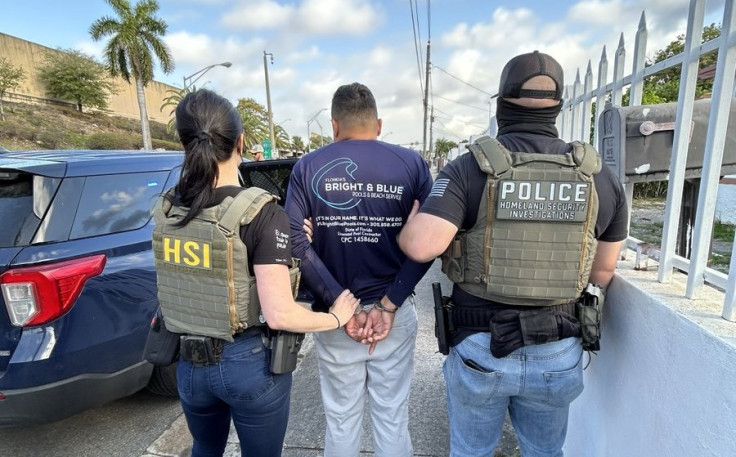
The Trump administration is focusing some of its deportation efforts on the academic world, recently detaining international students across the country who were in the country legally on student visas after accusing them of supporting Hamas in its war with Israel. Three of these students have been taken to a remote ICE detention center in Louisiana, a facility that civil rights groups have called "a black hole."
Students Mahmoud Khalil, Rumeysa Ozturk and Alireza Doroudi were all recently arrested near their homes in separate instances before being taken hundreds of miles away to the Louisiana detention center, according to a new report by NBC News.
"They're being placed in facilities that have pretty horrendous conditions, a lot of difficulties with access to counsel and in what is really a more hostile legal jurisdiction to fight their case for the right to remain in the United States, said Mary Yanik, the director of the Immigrant Rights Clinic at Tulane Law School in New Orleans.
Khalil, a legal permanent resident and pro-Palestinian protest leader at Columbia University, was arrested at his apartment building in New York City on March 8 before being shuttled to a detention center in New Jersey and then taken some 1,000 miles away to the Central Louisiana ICE processing Center in Jena, Louisiana. His lawyers are fighting to have him returned to the Northeast and released in a case challenging his arrest and detention that was recently moved to a New Jersey court.
Last week, Alireza Doroudi, a doctoral student from Iran who was staying at the University of Alabama, was arrested off campus by federal immigration authorities with little known about his case. ICE's detainee locator has since revealed Doroudi was also taken to the Central Louisiana ICE Processing Center in Jena.
That same day, Tufts University doctoral student Rumeysa Ozturk, a Turkish national who was in the United States with a valid student visa, was pulled off the street on her way to break her Ramadan fast with friends in an arrest by plainclothes agents captured on video. She was taken to the South Louisiana ICE Processing Center in Basile, Louisiana, which holds female detainees.
The brutal conditions of the detention centers have been previously reported. In 2024, a report by the Department of Homeland Security documented problems at the Basile facility including a mosquito infestation and a lack of sufficient medical staff.
Detainees in the Jena facility are typically housed in large rooms with 50 to 80 people in rows of metal bunk beds, according to lawyers and rights advocates. At the moment only men live at the 1,160-bed facility, which has a field for detainees to play soccer, according to a report from The Wall Street Journal. The residents are woken around 3:30 a.m. for breakfast at 4 a.m., followed by lunch at 10 a.m. and dinner at 4 p.m.
The detainees can sign up for volunteer work shifts that often pay $1 a day, lawyers and civil-rights groups said. Those funds can be used to buy food and other items from a facility store or to pay for calls with family. At the South Louisiana ICE Processing Center, operated by the same private-prison company as the Jena facility, a bag of Doritos is $9, according to WSJ.
In an August 2024 report titled "Inside the Black Hole," multiple groups said they documented "systemic human rights abuses" against immigrants in the facilities, which included the detention centers in Jena and Basile where the students have been taken.
"There was deprivation of human necessities, abusive and discriminatory treatment. There was medical abuse and neglect," said Sarah Gillman, a co-author of the report and the director of Strategic U.S. Litigation at the nonprofit Robert F. Kennedy Human Rights.
Gillman also said the rights group found that in past cases, immigrants detained in Louisiana lacked access to lawyers and faced other major obstacles such as lack of translators and having to prepare important documents in their deportation cases in English, a language some of them didn't speak.
"We met many, many, many people who didn't have access to lawyers who could help them, didn't have access to their families, didn't have access, really, to the outside world," she said.
© 2025 Latin Times. All rights reserved. Do not reproduce without permission.




